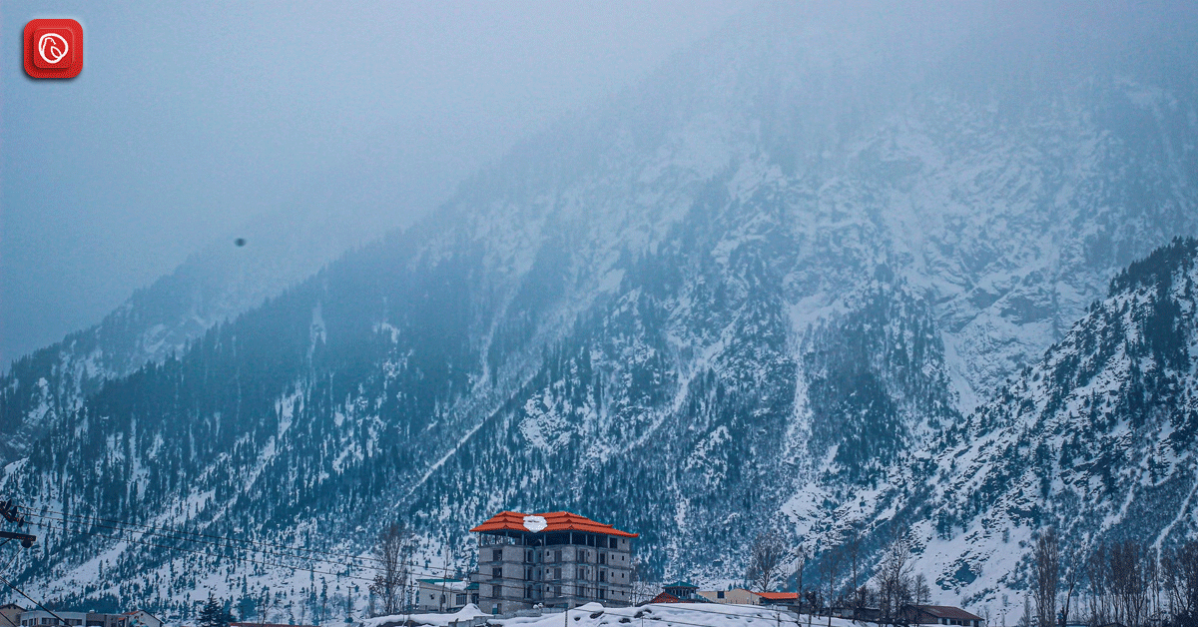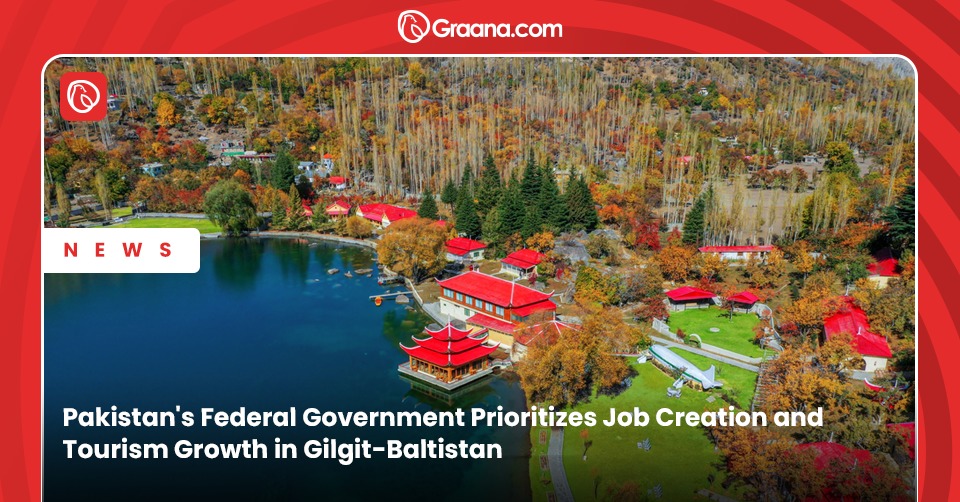As the world embraces the chilly grip of winter, Pakistan transforms into a magical wonderland, painted in shades of pristine white. Moreover, Snowfall blankets its mountain peaks, valleys, and plains, creating breathtaking landscapes that lure adventure seekers and nature lovers alike.
Additionally, Snowfall in Pakistan is a magical experience, transforming the landscape into a winter wonderland. While it primarily occurs in the northern mountainous regions like the Himalayas, Karakoram, and the Hindu Kush, snowfall can occasionally grace the northern reaches of Balochistan and Khyber Pakhtunkhwa as well.
Graana.com has gathered information on everything you need to know about Snowfall in Pakistan.
Pakistan Snowfall Areas
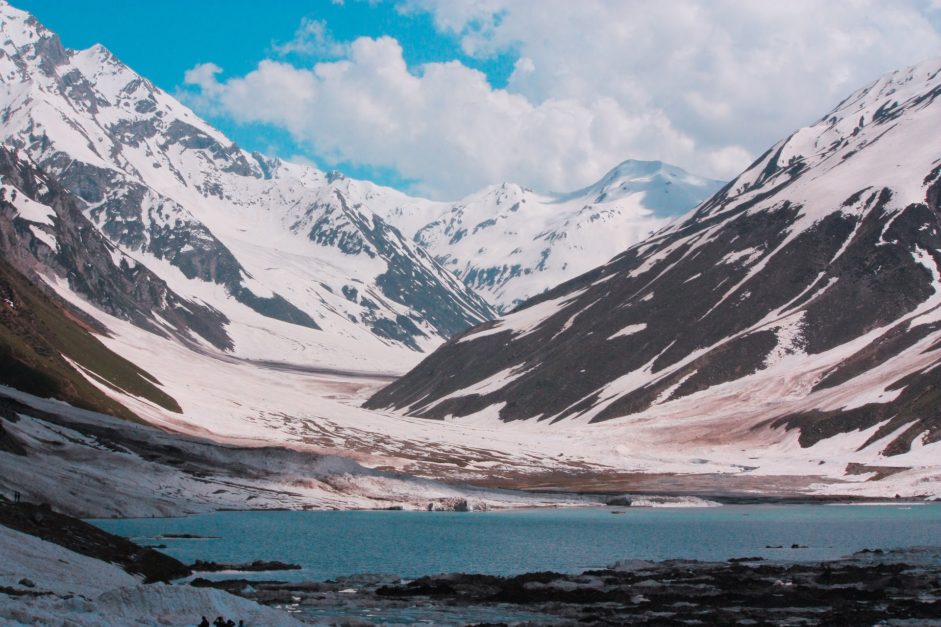
Here is the list of Pakistan Snowfall Areas with their location:
| Region | Destination | Address | Description |
| Northern Pakistan | Hunza Valley | Gilgit-Baltistan, Pakistan | Famed as the “Shangri-La of Pakistan,” Hunza offers stunning snow-capped peaks, ideal for skiing and snowboarding. |
| Naltar Valley | Gilgit-Baltistan, Pakistan | Nestled in the embrace of snow-capped mountains, Naltar offers breathtaking skiing adventures and picturesque scenery. | |
| Skardu Valley | Gilgit-Baltistan, Pakistan | Home to the world’s second-highest peak, K2, Skardu Valley boasts mesmerising snow-covered landscapes and thrilling trekking opportunities. | |
| Chitral Valley | Khyber Pakhtunkhwa, Pakistan | Known for its unique Kalasha culture and vibrant festivals, Chitral transforms into a winter wonderland with mesmerising snow-draped valleys. | |
| Northwest Pakistan | Murree | Punjab, Pakistan | The “Queen of Hills,” Murree is easily accessible and offers colonial-era charm amidst snow-covered hills, perfect for winter picnics and scenic walks. |
| Swat Valley | Khyber Pakhtunkhwa, Pakistan | Dubbed the “Switzerland of Pakistan,” Swat Valley boasts stunning snowy landscapes, pine forests, and charming resorts, ideal for winter sports and relaxation. | |
| Kalam Valley | Khyber Pakhtunkhwa, Pakistan | Nestled in the Hindu Kush mountains, Kalam Valley offers breathtaking snow-covered peaks, lush meadows, and opportunities for trekking and exploring local culture. | |
| Central Pakistan | Naran Valley | Khyber Pakhtunkhwa, Pakistan | Located near Saiful Muluk Lake, Naran Valley offers stunning snow-covered peaks, breathtaking waterfalls, and opportunities for camping and enjoying winter sports. |
| Kaghan Valley | Khyber Pakhtunkhwa, Pakistan | Part of the Naran Valley, Kaghan offers picturesque snow-covered landscapes, crystal-clear rivers, and charming villages, ideal for winter retreats and exploring nature. | |
| Southern Pakistan | Ziarat | Balochistan, Pakistan | Nestled in the Quetta Division, Ziarat offers a unique winter experience with snow-covered mountains, juniper forests, and historical landmarks. |
Northern Enchantment
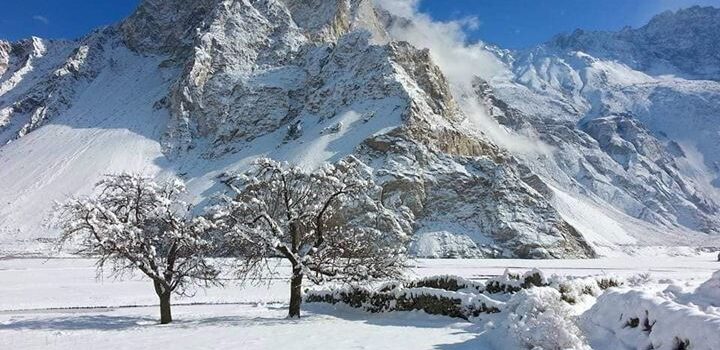
Hunza Valley known as “Heaven on Earth,” beckons with its breathtaking vistas. Imagine carving fresh tracks down snow-laden slopes, the sun glinting off K2’s majestic peak in the distance. Naltar Valley whispers promises of thrilling ski adventures and serene moments by frozen lakes.
Furthermore, Skardu Valley, home to the world’s second-highest peak, offers a playground for seasoned trekkers and mountaineers, its snow-sculpted landscapes a testament to nature’s grandeur.
Northwest Delights
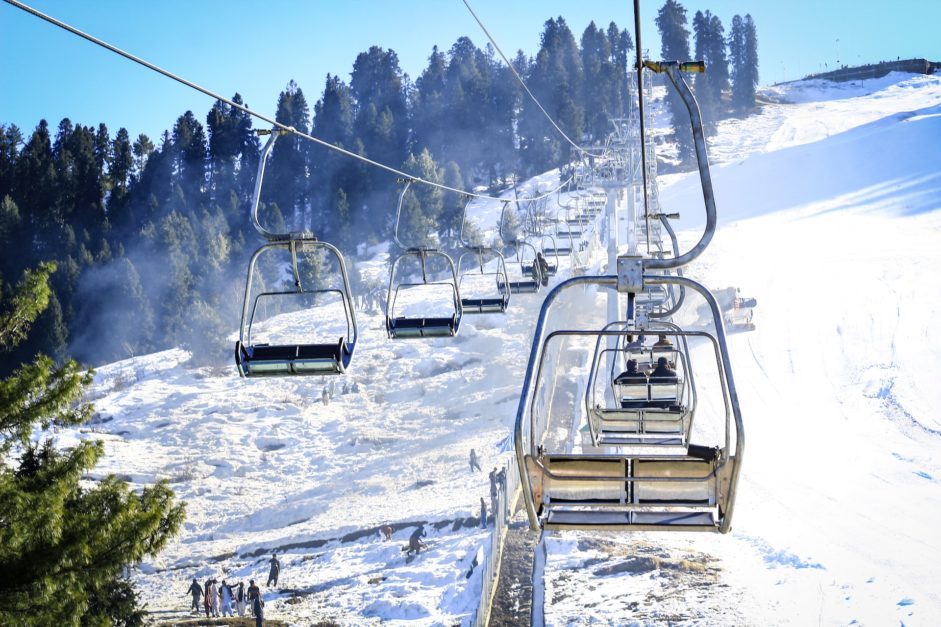
Murree, the “Queen of Hills,” welcomes you with its colonial-era charm nestled amidst snow-dusted hills. Picture cosy cafes, lively bazaars, and scenic walks along snow-covered avenues.
On the other hand, Swat Valley dubbed the “Switzerland of Pakistan,” unfolds like a fairytale, its pine forests blanketed in white, its resorts promising cosy comfort and exhilarating winter sports. Moreover, Kalam Valley, nestled in the Hindu Kush embrace, paints a picture of snow-capped peaks, emerald meadows, and the thrill of adventure beckoning from every slope.
Central Tranquillity

Naran Valley, with its beautiful Saiful Muluk Lake glistening like a sapphire, invites you to camp under a star-studded sky, the snow-laden peaks guarding your dreams. However, Kaghan Valley, an extension of Naran’s beauty, offers crystal-clear rivers weaving through charming villages, their snow-covered rooftops whispering tales of winter’s magic.
Southern Serendipity
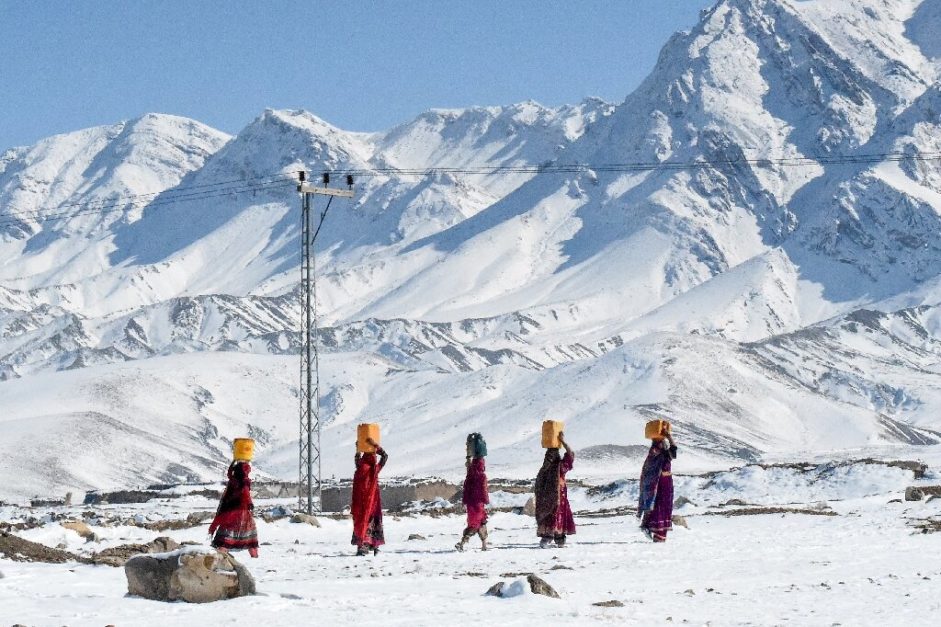
Ziarat, situated in the Quetta Division, presents a unique winter experience. Also, imagine juniper forests draped in snow, historical landmarks standing sentinel against the frosty backdrop, and the promise of serenity within reach.
Moreover, Pakistan’s snowy landscapes are more than just breathtaking vistas; they are woven into the fabric of local life. Furthermore, farmers rejoice as winter meltwater nourishes their fields, traditional winter sports like “shando” bring communities together, and the spirit of adventure binds travellers and locals alike.
Snowfall Season In Pakistan
You can expect Snowfall in Pakistan in the following seasons:
| Region | Snowfall Season | Peak Months | Areas | Notes |
| Northern Pakistan | December – March | January & February | Hunza Valley, Naltar Valley, Skardu Valley, Chitral Valley | Consistent snowfall, sub-zero temperatures, winter sports paradise |
| Northwest Pakistan | December – February | December (lightest), February (thickest) | Murree, Swat Valley, Kalam Valley | Occasional snowfall, in December & February offers thicker cover, Kalam Valley starts earlier |
| Central Pakistan | December – February | December & February (occasional) | Naran Valley, Kaghan Valley | Unpredictable snowfall, potential icy roads |
| Southern Pakistan | January – March | Unpredictable | Ziarat | Rare snowfall, depending on the year |
Safety Precautions For Enjoying The Snowfall
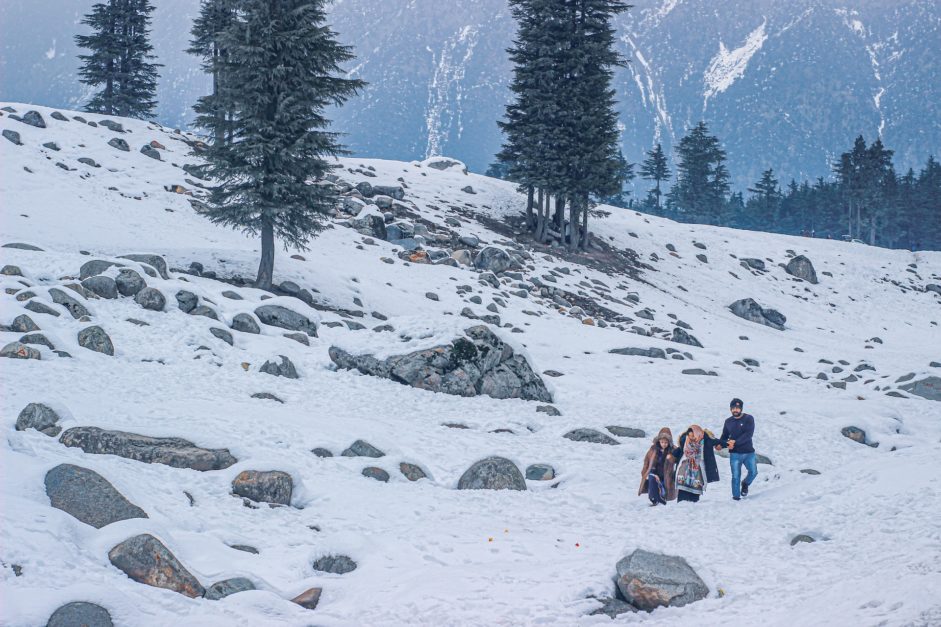
Here are some Safety precautions you need to follow while enjoying snowfall:
Dress warmly in layers
Pack thermals, waterproof boots, and a windproof jacket to stay comfortable in the chilly weather.
Check weather conditions
Be aware of potential avalanches and road closures before venturing out, especially in remote areas.
Carry essential supplies
Pack essentials like food, water, a first-aid kit, and a portable charger in case of unexpected delays.
Respect the environment
Leave no trace behind and avoid littering to preserve the beauty of the snowy landscapes.
FAQs
Here are some FAQs about Snowfall in Pakistan:
1. When is the snowfall season in Pakistan?
The snowfall season in Pakistan varies depending on the region.
- Northern Pakistan: December to March, peaking in January and February.
- Northwest Pakistan: December to February, with December offering lighter cover and February having the thickest. Kalam Valley may see snow from November.
- Central Pakistan: Occasional snowfall in December and February.
- Southern Pakistan: Unpredictable snowfall between January and March, rare in some years.
2. Where are the best places to see snowfall in Pakistan?
- Northern Pakistan: Hunza Valley, Naltar Valley, Skardu Valley, Chitral Valley
- Northwest Pakistan: Murree, Swat Valley, Kalam Valley
- Central Pakistan: Naran Valley, Kaghan Valley
- Southern Pakistan: Ziarat (unpredictable)
3. What is the weather like during snowfall season?
- Expect sub-zero temperatures in the northern mountains.
- The northwest areas experience moderate temperatures with colder nights.
- Central Pakistan can have unpredictable weather patterns.
- Southern Pakistan may not experience snowfall at all in some years.
4. What activities can I do during snowfall season?
- Skiing and snowboarding: Popular in the north (Hunza, Naltar).
- Trekking and mountaineering: Available in Skardu Valley, Chitral.
- Winter sports: Enjoying snow in Murree, Swat Valley, and Kalam Valley.
- Camping and sightseeing: Naran and Kaghan valleys offer stunning scenery.
- Exploring historical landmarks: Ziarat has unique historical sites.
5. What should I pack for a trip during snowfall season?
- Warm clothes, including layers and thermals.
- Waterproof boots and gloves.
- Sunglasses and sunscreen for sunny days.
- Hat and scarf to keep your head and neck warm.
- Emergency supplies like a first-aid kit and a power bank.
6. Is it safe to travel during snowfall season?
- Always check weather forecasts and road conditions before travelling.
- Be aware of potential avalanches and landslides in mountainous areas.
- Dress warmly and avoid overexertion in the cold.
- Respect local customs and traditions.
7. How much does it cost to travel to Pakistan during the snowfall season?
- Travel costs can vary depending on the destination, transportation, and accommodation.
- Expect higher prices during peak season (January and February).
- Booking in advance can help you find deals and avoid last-minute hikes.
8. Do I need a visa to travel to Pakistan?
Visa requirements depend on your nationality. Check with the nearest Pakistani embassy or consulate for specific information.
9. What are some local traditions associated with snowfall?
- Celebrating snowfall with bonfires and traditional music.
- Enjoying special winter dishes like “shando” in Gilgit-Baltistan.
- Participating in winter sports competitions and festivals.
10. How can I stay updated on current snowfall conditions?
- Check the Pakistan Meteorological Department website or app for weather forecasts.
- Follow local news channels and social media for updates.
- Ask locals for their insights and recommendations.
If you want to know more about the passes of Pakistan, follow the Graana blog.
